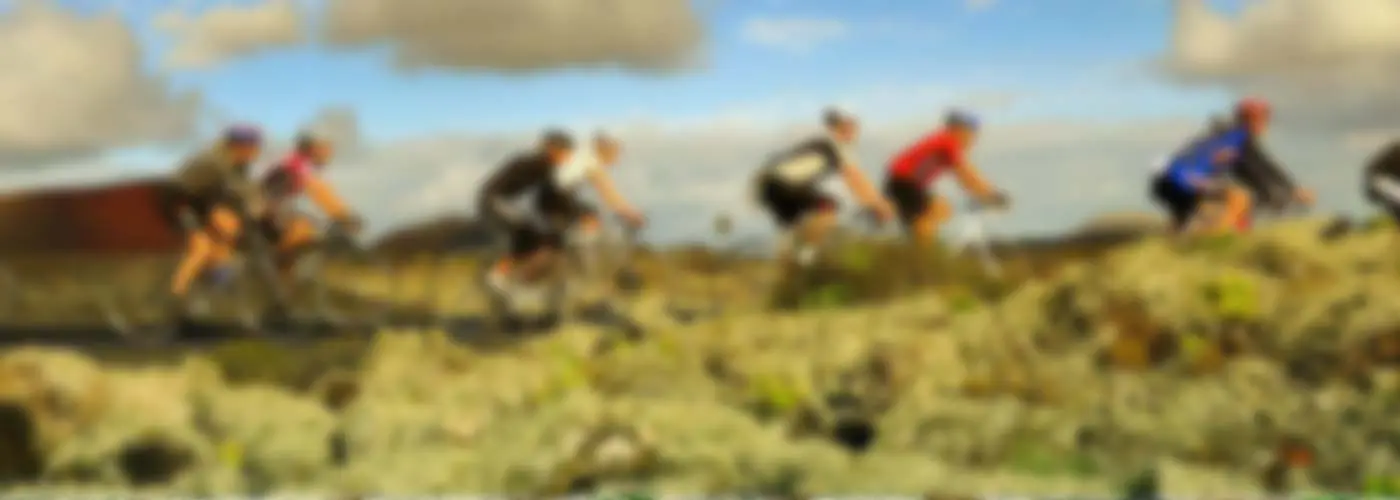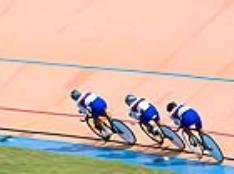With 90 minutes to go you should be mainly focused on hydration, carbohydrate intake, caffeine and beet juice. Now is not the time to eat high fat or high protein foods as they take more time to empty out of your stomach and won't serve you during your event. The focus would be on easy to digest carbohydrate-based foods or sports drinks, depending on your preference.
Let's look at each one individually, starting with hydration.
Hydration
1 of 10
Ideally you have been hydrating daily and leading into the event you have been paying special attention to sodium intake by lightly salting your food. Because there is a wide variability in individual sweat rates as well as many factors that affect hydration such as altitude, duration and intensity of workout, heat and humidity, it's almost impossible to provide specific guidelines of how much fluid athletes should consume.
Find:
Your Next RideMethods of Addressing Hydration
2 of 10
- Urinating large amounts of light-colored diluted urine is a good sign that you are quite hydrated. Urine color can be affected by B vitamins, some vegetables (asparagus) and beet juice, so is not the only indicator of hydration if you are ingesting any of these.
- You should know your consistent baseline body weight pre- and post-workout. Dropping weight means you need to rehydrate and drink a bit more and finishing a ride heavier may mean you are drinking too much.
- The American College of Sports Medicine recommends implementing a hydration plan that prevents excessive dehydration (over 2 percent body weight loss from your baseline weight). Going into an event it's normal to be heavier than your baseline since you have topped up your carbohydrate stores.
- Every gram of carbohydrate is stored with approximately three grams of water, which means if you store an extra 100 grams (400 calories) of carbohydrates it will result in a weight gain of approximately one pound.
Do a few "mock race" weekends and test a few customized fluid plans. Don't wait until race day to experiment. Perhaps you try two hours pre "mock race" drinking 16 to 24 ounces of water and one hour pre-mock race another 8 to 16 ounces of water. It's OK to start a race with a bit of a distended belly from fluid, just practice this in training first. It's like having another bottle in your pocket; instead it's in your belly.
Find:
Your Next RideCarbohydrates Pre-Race
3 of 10
The majority of studies have shown either unchanged or enhanced endurance exercise performance after eating carbohydrates in the hours leading up to exercise. These same studies have not shown detrimental outcomes in performance due to pre-exercise carbohydrate intake. The choice is individual. Test out a routine and see if it feels good for you to eat in the last hour pre-event.
Once you have eaten your breakfast three to four hours before your event, it's possible that you may begin to get a bit hungry within 90 minutes of your race time. This is when your fuel choice should be mainly carbohydrates.
Although your breakfast will increase the carbohydrate availability in your muscles and liver, this last pre-event snack will work mainly to affect liver glycogen and increase the delivery of carbohydrates to the muscles during exercise. Low fat, lower fiber carbohydrates will be the easiest to digest and will empty out of your stomach relatively quickly. Such examples are sports drinks, potatoes, rice bars, Fig Newman not Newton cookies (it's the organic version of the original! No corn syrup!), bananas, dates, bread with jam or juices.
Find:
Your Next RideThe Science
4 of 10
A few studies have looked at the timing of carbohydrate ingestion and plasma glucose concentrations. The general outcome seems to be that although your plasma glucose is higher if you snack 15 minutes pre-event versus 45 or 75 minutes pre-event, the difference in plasma glucose disappears within 10 minutes of exercise and no significant performance differences are seen. Timing is up to you. However, some athletes may experience what is known as "reactive hypoglycemia" when they eat within the last 75 minutes pre-event. This may feel like fatigue and low energy. For those athletes, here are a few suggestions that can be helpful:
- Eat your pre-event carbohydrates in the last 5-10 minutes pre-race
- OR don't eat any carbohydrates in the last 90 minutes before your event starts unless they will be in the last 5-10 minutes pre-race as noted above.
- Try eating foods with lower glycaemic index in the last hour before an event to reduce the consequence of high plasma glucose.
- Add a warmup pre-event to stimulate uptake of the glucose
- Eating fructose or a combination of carbohydrates other than glucose with a lower glycaemic index.
Find:
Your Next RideGeneral Carbohydrate Consumption Guidelines
5 of 10
A general guideline you can follow on carbohydrate consumption leading into the last 90 minutes pre-race would be approximately 1g/kg. This can be in the form of a sports drink or solid food. A few examples for a 150-pound athlete would be approximately 68 grams of carbohydrates:
- 1 medium banana, 1 small wrap, 1 tablespoon of honey = 65 grams
- 1 package of Honey Stinger chews, 1 bottle of Skratch Labs Exercise Hydration Mix = 60 grams
- 1 medium baked potato, 1 bottle of E-load Endurance Formula = 70 grams
- 2 large medjool dates, 1 bottle of E-load Endurance Formula = 70 grams
Find:
Your Next RideCaffeine
6 of 10
Caffeine has been shown to improve performance. There are several different mechanisms that it is proposed to work, which in basic terms include:
- Decreasing perception of effort
- Sparing glycogen by increasing lipolysis (the breakdown of fats)
- Increasing excitability of the muscle fibers
Find:
Your Next RideCaffeine Continued
7 of 10
Caffeine is not only found in coffee, although it is the most common means of intake. Caffeine can be ingested via tablets, teas, cocoa beans and cola nuts.
Blood levels of caffeine rise and peak at about 60 minutes post-ingestion. I recommend drinking or ingesting your caffeine 1 hour before your event starts to be pumped and ready to go on the line.
The recommended dosage, based on outcomes from several studies, is from three to six milligrams of caffeine per kilgram of body weight. Going above this will not provide increased benefits.
Example of four mg/kg of caffeine for a 150-pound athlete would be 272 mg of caffeine. Here are some common sources of caffeine so you can see what you would have to drink to take in this amount. Calculate your own:
- 8-ounce Starbucks coffee = 180 mg
- 12-ounce Starbucks coffee = 260 mg
- 5-ounce of 5 min brew tea = 20-50 mg
- 1 can of Coca Cola = 46 mg
- No Doz = 200 mg per tablet
- Espresso = 75 mg solo/150mg dopio
Find:
Your Next RideBeet Juice
8 of 10
The latest in ergogenic aids is beet juice. This super tonic can improve your oxygen efficiency, a true breakthrough in endurance sports. Go the same distance on less oxygen. Nothing else has ever been able to do this, and it's the Tour de France's best-kept secret.
Several studies have now confirmed the effects of nitrates on athletic performance including a study done at the University of Exeter's School of Sport and Health Sciences. The study looked at eight male cyclists consuming half a liter of beet juice, containing nearly 700 mg of naturally occurring nitrates for six days. The beet juice group was able to cycle an average of 16 percent longer. The time-to-exhaustion in the "severe test" was significantly extended when beetroot juice was taken compared to placebo (675 seconds vs. 583 seconds, a 16 percent improvement.)
The timing is not yet set in stone. Beet juice ingestion has been proven to work both 2.5 hours pre-event up to 30 minutes pre-event. Some studies have shown performance improvement with no loading phase while others have used a loading phase of up to six days. The bottom line is athletes are noticing the performance improvements from beet juice. I've noticed it and believe that it's the real deal.
The recommended dose is 500 ml of beet juice pre-event or 70 ml of the Beetit Sport Shot which is very convenient and doesn't create a mess in the kitchen. Some athletes experience GI upset taking 500ml close to their event, so be sure to experiment with 500 ml in training, before race day. In this case I would recommend taking 250 ml pre event and loading with 500 ml the days leading in. Loading 2-3 days before the event is a good idea based on some study protocols.
Find:
Your Next RideSummary
9 of 10
So there you have it. What to do as the seconds tick down before your event starts? Make a plan! Have everything prepared for the morning of your event. One of the biggest gifts you can give yourself as a competitor is to reduce drama, which is generally done by good preparation. Have your meal planned and your snacks, hydration, caffeine and beet juice planned. Now all you need to do is execute and perform.







Discuss This Article